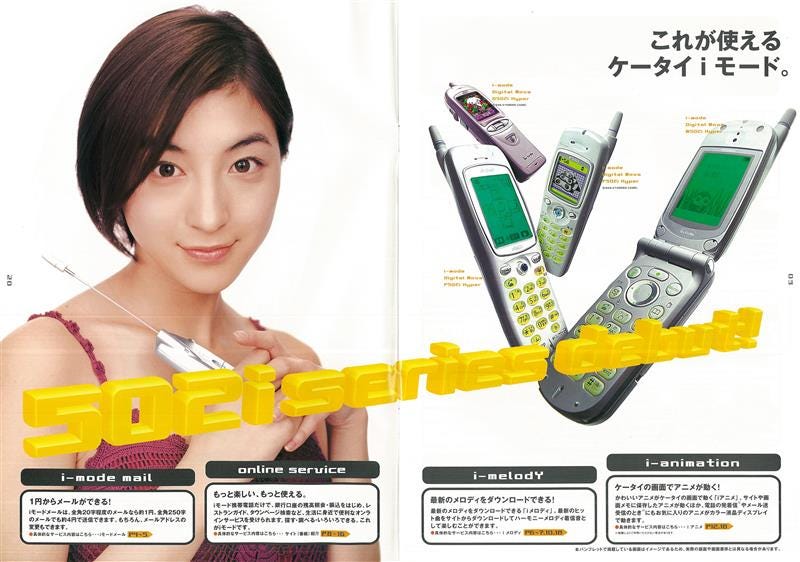Japan failed at social media
And won the bigger game.
Failed? What you say? A massive percentage of the Japanese population uses social media! But consider this: Facebook, Instagram, YouTube, and Twitter are American. Japan’s single most-used service, LINE, was made in Korea. TikTok is Chinese. Not a single one of the major globally popular social media platforms is Japanese.
This is ironic, because a Japanese person created the very first online community to really rewire an entire society. In 1999, long before Reddit or Twitter or any of the rest were a twinkle in their coder’s eye, Hiroyuki Nishimura launched 2channel. It was an anonymous bulletin board system, initially created as a way for young people to find their tribes and speak truth to power without fear of social reprisal. It arrived with impeccable timing, just as telecom DoCoMo unveiled iMode, the world’s first popular mobile internet service for cell phones. I was visiting Tokyo regularly around this time, and remember it being like a switch being flipped. Before, few other than computer-otaku were online. After iMode, everyone was.
The sight of young Japanese thumbing away at flip-phones on the streets of Japanese cities at the turn of the Millennium totally floored foreign observers. This was the future! Science fiction writer William Gibson rhapsodized them as Modern Boys and Mobile Girls. “If you believe, as I do, that all cultural change is essentially technologically driven,” he wrote in 2001, “you pay attention to the Japanese.” If you had described the concept of a social media service to Gibson in 2001 and asked him who was most likely to create the world’s biggest one, he almost certainly would have answered “Japan.”
But Japan didn’t.
2channel grew quickly, and just as quickly devolved into a morass of harassment, hate, and troll campaigns. Its unregulated, anonymous forums unleashed the ultraconservative “net-right,” a precursor to America’s “alt-right,” and presaged the way similar online communities would later troll societies around the globe. The American site 4chan was inspired in large part by 2channel, and devolved along almost precisely the same lines. (When people talk about “cool Japan,” they often gloss over the inconvenient fact that one of the single biggest chaos agents in US history was constructed by a teenage anime fan.)
If nothing else, you’d think the 2channel experience would have primed Japan for launching a (hopefully less corrosive) social media platform of their own, and indeed, for a while there was Mixi, launched in 2004. It flourished for a time in the Aughts. But soon competition arrived from abroad, and that was it. Pundits were already writing Mixi’s obituary in 2012, and it doesn’t even rank on lists of most-used SNS in Japan, let alone anywhere else.
So despite its first-mover advantage, and even having at once had a fairly popular domestic SNS, Japan built precisely none of the mainstream online platforms that would transform global culture in the 21st century. What happened? How could Japan blaze a trail and lose its way at the same time?




